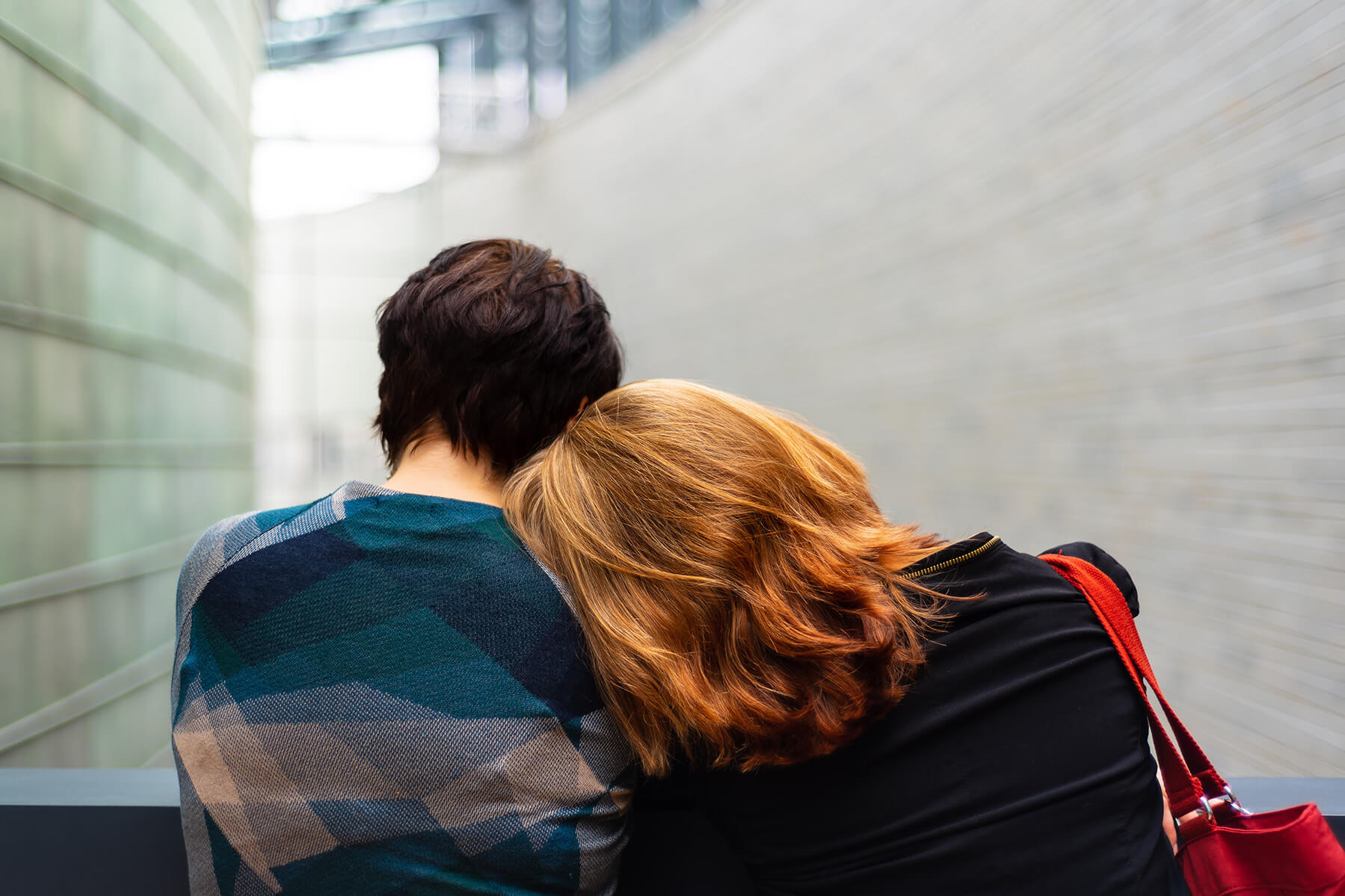
There are lots of straight couples who don’t want to get married but worry about the financial and legal risks of cohabiting. Extending civil partnerships could be one answer – and the pressure is growing
I can’t recall when my partner and I agreed we wouldn’t get married. It may have come up in discussions about our home lives: her parents had had an unpleasant divorce when she was young, who rather ruined the romance of marriage; my unmarried parents had had a rather pleasant separation, which left me unsure as to the point of the institution in general.
Over the years, though, this abstract opposition to marriage has become more concrete. Buying a (shared-ownership) house forced us to ask why we didn’t want the legal protections of marriage, to go with the intertwining of our lives in other respects. We were named in each other’s’ wills, paid bills and rent from a joint bank account and owned a house in common: why not make it all official?
Part of the answer was that the tradition of marriage remained a turn-off. For me, its history is hard to ignore: a woman may not have to swear “to obey” any more, but the institution remains the same. Symbolism is a powerful thing, and it’s not something an individual can erase at will. My partner has her own objection: she doesn’t want to be a wife, a word with a loaded history.
We aren’t alone. Many people are turning their back on marriage, choosing to cohabit without any formal legal partnership, or cobbling together the best they can with a mixture of contract law, trust law and hope. For some, such as my parents, this works: their separation didn’t come with years of legal wrangling, and the balance of power in their relationship was largely equal.
But it can also come with risks. Such couples have no protections, responsibilities or bonds, beyond those they have explicitly put in place. There is, contrary to popular belief, no such thing as a “common law marriage”, a fact that many only discover when it’s too late. “There is no better protection than what marriage gives people,” says Shlomit Glaser, a family law expert at solicitors Glaser Jones Law. “Because historically, that was the reason for marriage: to give protection, usually to the wife, and define the obligation of the husband.”
Without legal protection, a relationship that turns sour can become extremely damaging. “I had a situation where a woman ended up without heating in her house when her partner said he wouldn’t pay for it,” Glaser says.
Cohabiting couples are slowly gaining some rights. In early February, a landmark Supreme Court case ruled that cohabitees are automatically entitled to the pensions of their deceased partners, even if they are not explicitly nominated as beneficiaries. But it’s unlikely that there will ever be an automatic bundle of rights for unmarried partners. That could pose a problem, with people accidentally burdening themselves with inalienable responsibilities purely by moving in with a loved one. Glaser suggests that a piecemeal approach to the problem, amending specific bills such as those governing inheritance or taxation, would allow for the most glaring injustices to be rectified without introducing new problems.
There’s another potential solution, though. The UK already has a legal construct that provides a couple with the same rights as in marriage, while dispensing with the potentially distasteful symbolism. The downside is that it’s only available if both partners are the same sex.
Civil partnerships were introduced in 2004, as a compromise short of legislating for same-sex marriage. Almost immediately, a campaign was launched to allow mixed-sex couples to obtain civil partnerships, but it contained an element of legal trickery: the hope was that a ruling that civil partnerships were discriminatory would set a precedent that could open up marriage to same-sex couples.
With the passage of the Marriage (Same Sex Couples) Act in 2013, that motivation was rendered moot. Yet the campaign for mixed-sex civil partnerships continued. Nine months after the first same-sex marriage ceremonies took place, Rebecca Steinfeld and Charles Keidan launched a judicial review after being turned away from Chelsea town hall, where they had tried to register a civil partnership. After years of legal wrangling, the Royal Courts of Justice are set to hand down a judgment on the matter on Tuesday.
Steinfeld and Keidan’s case quickly attracted supporters, and grew into the campaign group Equal Civil Partnerships. Matt Hawkins, the group’s campaign manager, argues that a change in the law would provide the perfect model for people like me and my partner. “There’s a whole constituency of people out there who don’t like marriage,” he says. “They don’t like the phrase ‘man and wife’, and don’t like the patriarchal implications, but they do want the legal benefits.”
Advertisement
It would be a surprisingly easy change to institute. The Conservative MP Tim Loughton, who has introduced a bill in parliament aimed at equalising civil partnerships, told the House of Commons in January: “All that is required is a simple one-line amendment to the Civil Partnership Act 2004.” The substantive section of Loughton’s bill comes to just 25 words. “Part 1 of the Civil Partnership Act 2004 is amended as follows: In Section 1, subsection (1), leave out ‘of the same sex’.” That’s it.
But there is opposition. In the Commons, the minister for apprenticeships and skills, Robert Halfon, argued that Loughton’s amending bill could have “unknown, untested effects on myriad legislation-spanning areas such as pensions, devolution, international recognition, gender recognition, adultery and consummation”, arguing, in effect, that the work wasn’t worth it for a minor change. Others have been more forthright: when the issue was broached during the debates around same-sex marriage, David Cameron argued that such a change could “weaken” marriage.
It’s difficult to respond. On the one hand, marriage seems far more weakened by forcing it upon couples who don’t believe in the institution. On the other, international evidence suggests that civil partnerships could be surprisingly popular.
The French equivalent to civil partnerships is called the civil solidarity pact (pacte civil de solidarité, or Pacs). Like British civil partnerships, its roots lie in an attempt to satisfy demands from same-sex couples for equal marriage; unlike civil partnerships, it was solidly second-tier, with lesser tax benefits and property rights matched by a simpler process for separation.
Despite this, they have proved remarkably popular for couples of mixed and same genders: in 2015, according to the French national statistics board Insee, 188,900 couples entered into a Pacs, compared with 236,400 couples who got married. Marriage figures have declined by a fifth in a little more than a decade, and it looks as if most of those couples are getting Pacs instead. It’s not all bad for defenders of traditional marriage, though: more than 40% of Pacs unions that end do so because the couple decide to get married.
There is one place in the British Isles where mixed-sex couples can get civil partnerships: the Isle of Man. In July 2016, the crown dependency legalised same-sex marriage, and went one step further by also legalising mixed-sex civil partnerships.
Adeline Cosson and Kieran Hodgson, the first mixed-sex couple to get one on the island, said that they wanted to “keep it simple” rather than have a traditional wedding, but didn’t rule out getting married at a later date – a reminder that not everyone who wants a civil partnership is opposed to marriage itself.
Despite the island’s close ties to the UK, Manx civil partnerships aren’t recognised by the British government unless they are between same-sex couples, but that hasn’t stopped mixed-sex couples making the three-hour boat trip from Liverpool – or 80-minute flight from London – to get one. Martin Loat and Claire Beale were the first such couple from the UK, and the second on the island, to register their partnership.
“We’ve never really been the marrying types,” says Loat. “We don’t feel it’s necessary to take a vow or publicly pledge in any form to validate our relationship.” He and Beale travelled to the island in the hope that their partnership would be a small addition to the pressure on the UK to legislate for equality.
There is another constituency with a voice worth hearing on the matter: the LGBT community, for whom civil partnerships were created in the first place. Ben Summerskill, director of the Criminal Justice Alliance, was chief executive of Stonewall from 2003 to 2014, and was instrumental in the fight for civil partnerships and equal marriage.
By and large, he says, he wants to stay out of the debate. “My view is that it’s really for straight people to decide whether they want them, and it’s not for me to go round instructing straight people what’s good for them.” Nonetheless, he acknowledges that gay people may have a reason for speaking up. Many, for instance, still choose to get civil partnerships, despite the option of marriage being available.
“I think the reason for that is that there were quite a lot of gay people who feel that they waited an incredibly long time for this, and finally had something that was slightly special, and certainly recognised their existence,” he says. Their importance as a tool of gay visibility, even today, shouldn’t be underestimated: “Suddenly, on the income tax form, it said ‘marriage or civil partnerships’. Within five years almost everyone in this country knew someone who was in a civil partnership, or had been to a celebration, and all of them were just like all the weddings everyone has been to.”
Hawkins, of the Equal Civil Partnerships campaign, acknowledges this argument. But, he says, “What we want to be about is treating love, and couples, entirely as equals. Everyone’s relationship is special. But if it’s seen as good enough for same-sex couples, it should be good enough for mixed-sex couples.”
I would like a civil partnership, but unlike Hawkins, Steinfeld and Keidan, I haven’t spent my life campaigning for it. I do worry it could undercut the years that LGBT activists spent arguing civil partnerships were an offensive half-measure on the road to true equality. It’s also true that many of the issues of remaining unmarried can be countered on a piecemeal basis, with contracts and undertakings. But just as I don’t want my romantic life to have a seal of approval from the state, to have to “take” someone as my “wife”, I also don’t want it to devolve into a mountain of paperwork just to ensure I can visit my partner in hospital if the worst happens.
Because of that possibility, I’m grateful to the campaign for pushing for my rights, and for those of so many others. If the Royal Courts of Justice rejects Steinfeld and Keidan’s case, that’s not the end of the matter: Loughton’s bill offers hope, and even the government has suggested reviewing the law at some point.
But if all that fails – well, then my bluff has been called. Is it really that I don’t like the implications of a traditional service, the outdated terminology, and the long history of patriarchy looming over the whole thing? Or am I just afraid of commitment? Hopefully, I’ll find out sooner rather than later.
Related posts
Understanding The Aim of Relationship Counselling- By Jamie Edwards – [...]
Advice / Family / Individuals / Mental Health / Parents / Relationships
Explains how the period around Christmas and new year might [...]
KEY POINTS Reflect on the positive reasons that you have [...]




